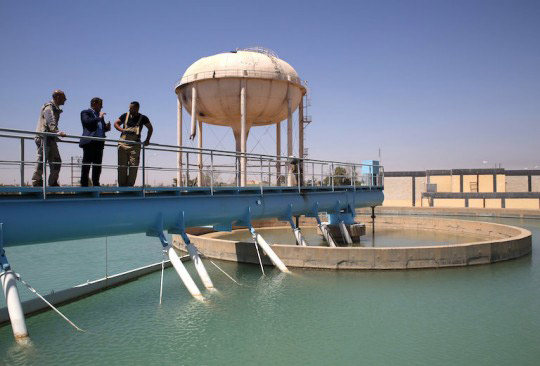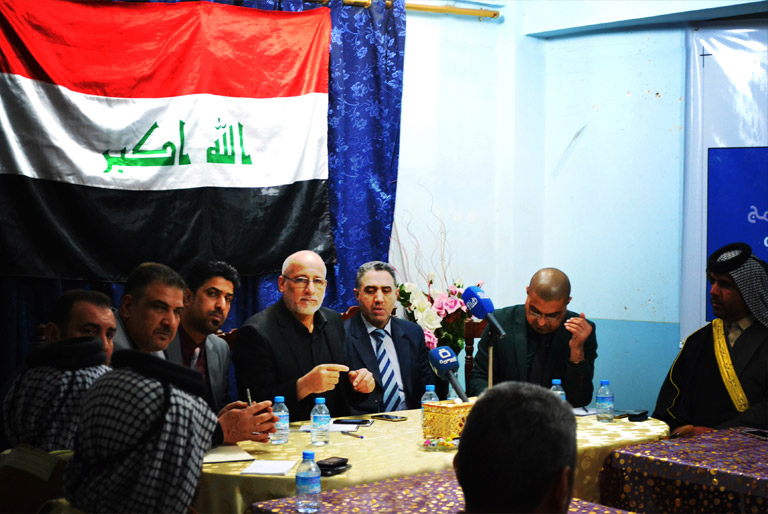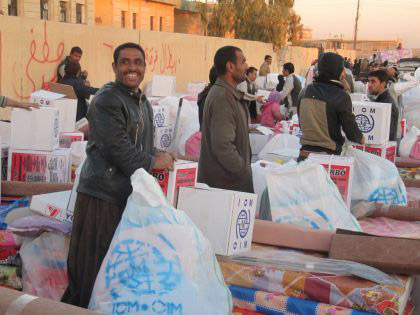1 - Providing physical security through demining
Local military and private sector teams have cleared over 582,000 square meters in Iraq, helping to secure homes and businesses for the returning population.
2 - Providing immediate support at camps for displaced persons
The International Organization of Migration – with the help of Coalition partners US, EU, UK, Germany, Canada and New Zealand – have helped almost 10,000 IDPs (internally displaced people) fleeing from Mosul. Families are given a tent, non-food kit, medical supplies and clothes for newborn babies.
3 - Funding for socio-economic opportunities
FFIS has provided temporary employment for thousands, including 800 residents in Tikrit – where cash infusions of $100,000 have enabled 100 shopkeepers to reopen their businesses. The EU has recently donated €50 million towards a multi-project scheme to generate socio-economic opportunities in liberated areas.
4 - Access to water, sanitation and hygiene services
Coalition partner Canada has contributed more than $23 million towards improving access to water, sanitation and hygiene services. Elsewhere a UNDP/Governorate of Erbil project to rehabilitate and upgrade the main water treatment plant in Rawanduz is improving resilience in an area where the local population has more than doubled in size due to IDPs. Germany has also supported the provision of clean water with funding to the Rebuild Iraq Recruitment Programme which now provides drinking water to 20,000 displaced Iraqis every day.
5 - Providing medical assistance
In early December, Kuwait donated $5 million to the World Health Organisation to provide medical assistance and supplies, medicines and access to trauma care in Mosul. Germany has donated five mobile clinics which provide primary health care services in recently-liberated regions. These are expected to help 45,000 Iraqis per year.
6 - Supporting local police forces
Having a trustworthy police force in close dialogue with the local population is crucial to stability. Germany provided €4 million in financial support for local police forces for 2016-2017 and around 4000 police have been trained by an Italy-led Coalition programme.
7 - Supplying reliable electricity
FFIS projects are providing electricity to 200,000 people in Ramadi through the delivery of 153 generators. 73 are already installed, with more to follow shortly.
8 - Working on reconciliation
Local NGO Sanad is creating a strategy to prevent violent extremism, especially amongst young men and local security forces in recently liberated territory. They also run dialogue sessions for host and guest communities in Iraq in order to mitigate tensions and promote integration.
9 - Re-opening education facilities
FFIS-funded rehabilitation of 19 education centres in Ramadi will help over 10,000 students. Five centres were completed in mid-October, allowing children to return to education before missing too much of the school year. The Government of Japan has also supported the rebuilding of 40 schools in IDP camps through donations to UNICEF.
10 - Gender awareness in post-conflict reconstruction and stabilisation
The FFIS and Al-Tahreer Association for Development have held sewing and nursing courses aimed at giving more than 600 women in Rabla skills that they can use to earn a living. The courses have primarily been aimed at female-headed households, including those whose husbands were killed or injured during the fighting.
Header Image – children in Fallujah attend a school reopened thanks to support by the Government of Japan.




